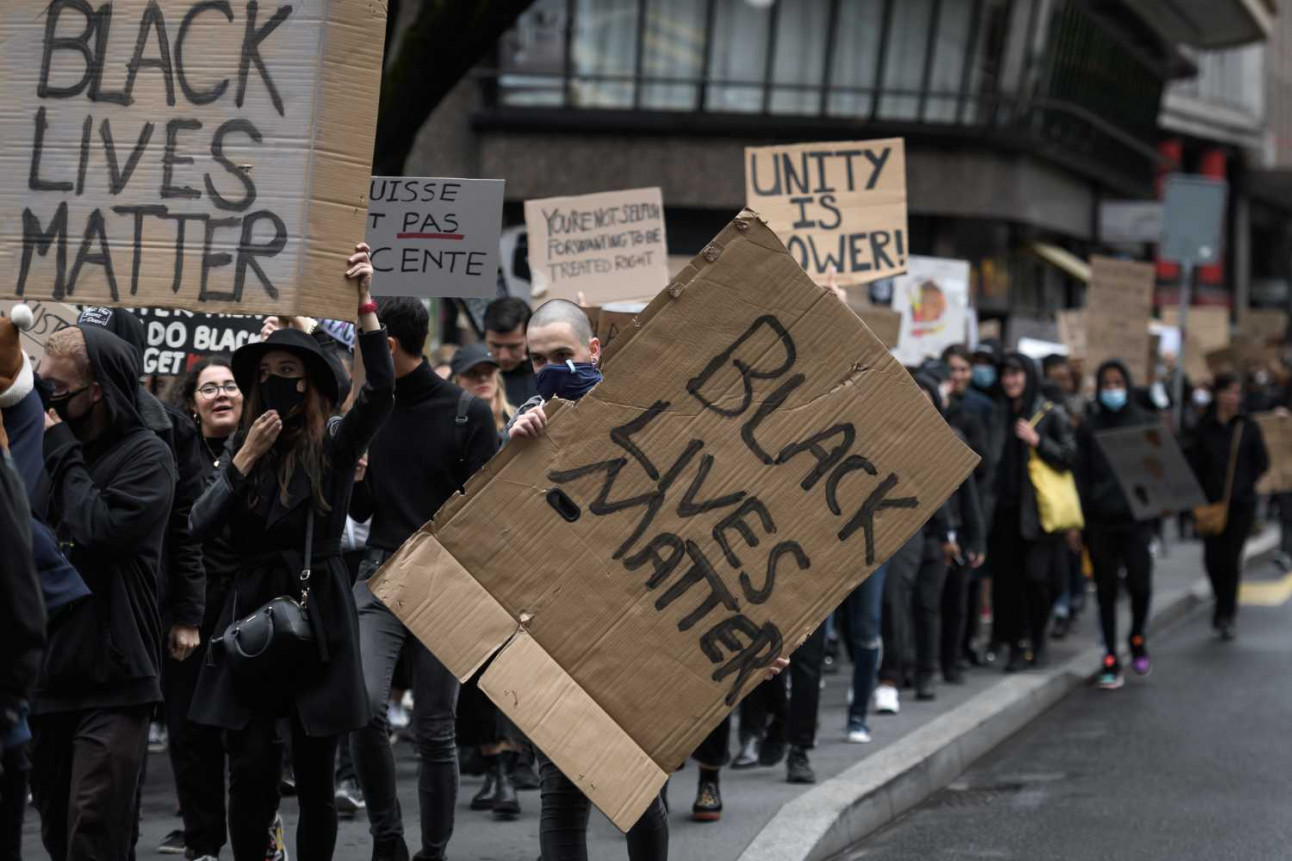The author, the daughter of an African diplomat, tells her own story of racial encounter at a moment the world is ready to listen to such stories more than ever before

The author
By Rebecca Stevens
I moved to Switzerland in September 1980, I was 9 years old. I was put into one of the best international schools in the country. I was bullied incessantly and mocked for being black. I was called a “monkey” and a “negress” every single day by fellow classmates. I didn’t have any friends and spent most of my time alone. I didn’t understand why I was called these names, I guess I was too young to understand racism then, but I did suffer from its nefarious and insidious effects — low self esteem and lack of self confidence.
I remember a particular episode in 1982 — I was in Grade 6. Someone had been going through the kids bags at school, stealing their pocket money. One day, my racist home room teacher kept us all in the classroom for six long hours while they investigated the matter. I had a pressing need to go to the bathroom and left the class for a few minutes. When I returned, she accused me of being the thief. She refused to believe I had simply gone to the bathroom — instead insisting that I must have left the room to hide what I had stolen. At the end of the day, they found the real thief — however that teacher, neither the school ever apologized about the incident. The trauma of that wrongful accusation affects me till this day.
The years flew by, but the bullying and harassment from classmates did not stop. I could not focus in the classroom, I could not learn. My grades suffered as a result. I did not enjoy or like school, it was a daunting and highly-unpleasant experience. During my early teenage years, I read a lot of romantic books and dreamed of being in love. I went to almost every Saturday night school dance. At the end of the night when the slow songs came on, the boys came around to ask the girls dance. I waited anxiously, genuinely hoping that I would get to dance. And every single time, the stinging words: “ I don’t dance with black monkeys”, would be uttered. Those experiences hurt me profoundly.
There was a bit of a respite to the racism in the mid 80’s due to celebrities like Michael Jackson, Lionel Ritchie, Sade, Florence Joyner, Grace Jones. All of a sudden, it was cool to be black and some of the students were kinder. My last two years of high school were pretty much ok — and my grades improved just in time to put me on track for a university education. In university in Canada, I had few racist encounters, but I was warned to never go to the Jane and Finch neighborhood next to my university campus because “there were many dangerous black people there”. I later on ventured to that same neighborhood to get my hair braided and realized that the people there were kind. They were categorized as criminals and up to no good because they were black.

One face at a June 2nd, 2020 protest in a Swiss city

Another face in another protest on June 7th, 2020
In 1993, with my degree in hand, I set out to find a job in Switzerland. I was amazed by the ease at which I managed to get job interviews. However, once I got to the interviews, there was always a look of surprise on the recruiter’s face. I later learnt that they had expected me to be “white” given my English sounding name: Rebecca Stevens. Some recruiters continued the interviews all the same, and turned me down later, others were forthright and told me I didn’t stand a chance of getting the job because I was black.
One particularly horrible incident was my interview with the Italian luxury brand Bvlgari. A senior executive there told me that he would never ever recruit me because of the color of my skin. He showed me out immediately. I remember walking out of their offices completely stunned at the blatant, overt act of racism that I had just experienced. I must have walked through downtown Geneva for hours, shocked, humiliated and traumatized. Emmanuel, my boyfriend at the time, now my husband wanted to legally pursue Bvlgari for discriminatory behavior. Switzerland had just voted an anti-discrimination law at the time and he felt we should take them to court for their abhorrent behavior. I couldn’t be bothered, I didn’t want to spend my energy taking on a giant — maybe I should have had the courage to at the time. To this day, I have never purchased or worn anything Bvlgari. I absolutely abhor the brand.
I did not let the Bvlgari and other racist recruitment experiences deter me from finding a job. I was lucky enough to start working for international organizations and companies that valued and appreciated diversity. In that world I felt safer, but racism still reared it’s ugly head on numerous occasions. (I will elaborate on that in another posting).
In the year 2000, I obtained my Swiss nationality. I did not encounter much racism while the authorities investigated whether I was well integrated in Switzerland to become a citizen, however since I got the passport, I have experienced countless incidents of racism at border crossings into Switzerland. While most non-black Swiss citizens are ushered through immigration, I am regularly stopped, searched and interrogated about my reasons for coming back to a place I consider home. It is a humiliating and degrading experience.
You must be asking yourself, why have I written all this. I am not looking for sympathy, neither am I trying to play the victim. I thought it was important for my friends and colleagues to know of my personal experience of racism in Switzerland. I have lived alongside racism for most of my life, but I truly think it is a “cancer” that can be eradicated.
I truly haven’t lost hope for a better world for my children. Racism is born out of fear of the “other”, of not knowing the “other”. As a sociologist, I strongly believe it is something that is taught and we can “unlearn” it. As Nelson Mandela once said: “No one is born racist, we are taught to become racist”. Let the “unlearning” of racism begin, we are an intelligent species, I am sure we can eliminate all forms of racism, bias and discrimination from the world. Thanks for reading.




























